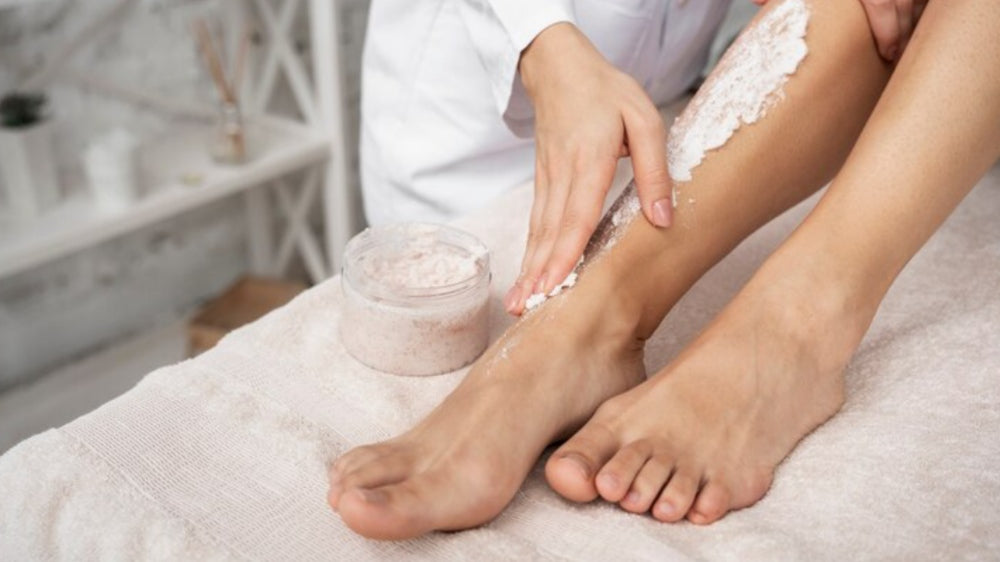Common Mistakes with Exfoliating Body Wash Beauticians Must Avoid
For beauticians, understanding the nuances of skincare is crucial. One of the integral parts of any skincare routine is exfoliation, and often, the use of an exfoliating body wash. However, while it seems straightforward, there are common mistakes with exfoliating body wash that can lead to more harm than good. This article aims to dive deep into these mistakes, helping you provide better advice to your clients.
Exfoliating is essential for removing dead skin cells, unclogging pores, and promoting healthy skin. Yet, when done incorrectly, it can result in irritation, dryness, and even long-term skin damage. For any beautician, being equipped with the right knowledge about these common mistakes is essential to guide clients effectively and maintain skin health.

Over-Exfoliating: The Most Common Error
One of the most prevalent mistakes is over-exfoliating. While it's tempting to think that more is better, exfoliating too often can strip the skin of its natural oils. This can lead to dryness, sensitivity, and even exacerbate conditions like eczema. According to experts, exfoliating two to three times a week is sufficient for most skin types. It's essential for beauticians to tailor this advice based on individual skin needs and conditions.
If you're interested in learning more about the effects of over-exfoliating, check out this essential guide on how to use exfoliating body wash safely.
Ignoring Skin Type: A Critical Misstep
Another common mistake is not considering the client's skin type before recommending an exfoliating body wash. Different skin types require different exfoliation techniques and frequencies. For instance, those with sensitive skin might benefit from a gentler formula, while those with oily skin might need a more robust exfoliating agent.
For more tailored advice, visit this resource that discusses how exfoliating body wash can improve skin texture.
Using the Wrong Product
Not all exfoliating body washes are created equal. A mistake often made is selecting the wrong product for the client's specific needs. It's vital to recommend products that are suitable for the client's skin type and concerns. For example, someone dealing with acne may require an exfoliant with salicylic acid, while someone looking to combat aging might benefit from glycolic acid.
For more insights on selecting the right products, consider reading this article that debunks common exfoliating myths.

Neglecting Moisturization
A critical step that many overlook is moisturizing after exfoliation. Exfoliating can leave the skin feeling dry, so it's crucial to replenish the skin's moisture barrier. Beauticians should always advise their clients to apply a nourishing moisturizer post-exfoliation to maintain skin hydration and elasticity.
Best Practices for Beauticians
Understanding these common mistakes and how to avoid them is crucial for any beautician. Here are some best practices to ensure effective exfoliation:
- Educate clients about the importance of patch testing new products to prevent adverse reactions.
- Encourage clients to listen to their skin and adjust their exfoliation routine based on their skin's needs.
- Stay updated with the latest research and trends in skincare to provide the best advice.
For further reading on alternatives to exfoliating body wash, you might find this resource helpful.
FAQ Section
Q: How often should I use an exfoliating body wash?
A: Generally, it's recommended to use an exfoliating body wash two to three times a week. However, this can vary based on individual skin types and conditions.
Q: Can I use an exfoliating body wash if I have sensitive skin?
A: Yes, but it's crucial to choose a gentle formula designed for sensitive skin and to use it less frequently.
Q: What should I do if my skin becomes irritated after using an exfoliating body wash?
A: If irritation occurs, stop using the product immediately and consult with a dermatologist or skincare professional for advice.
For more information on why exfoliating body wash should be part of your routine, visit this informative article.
This article contains affiliate links. We may earn a commission at no extra cost to you.

